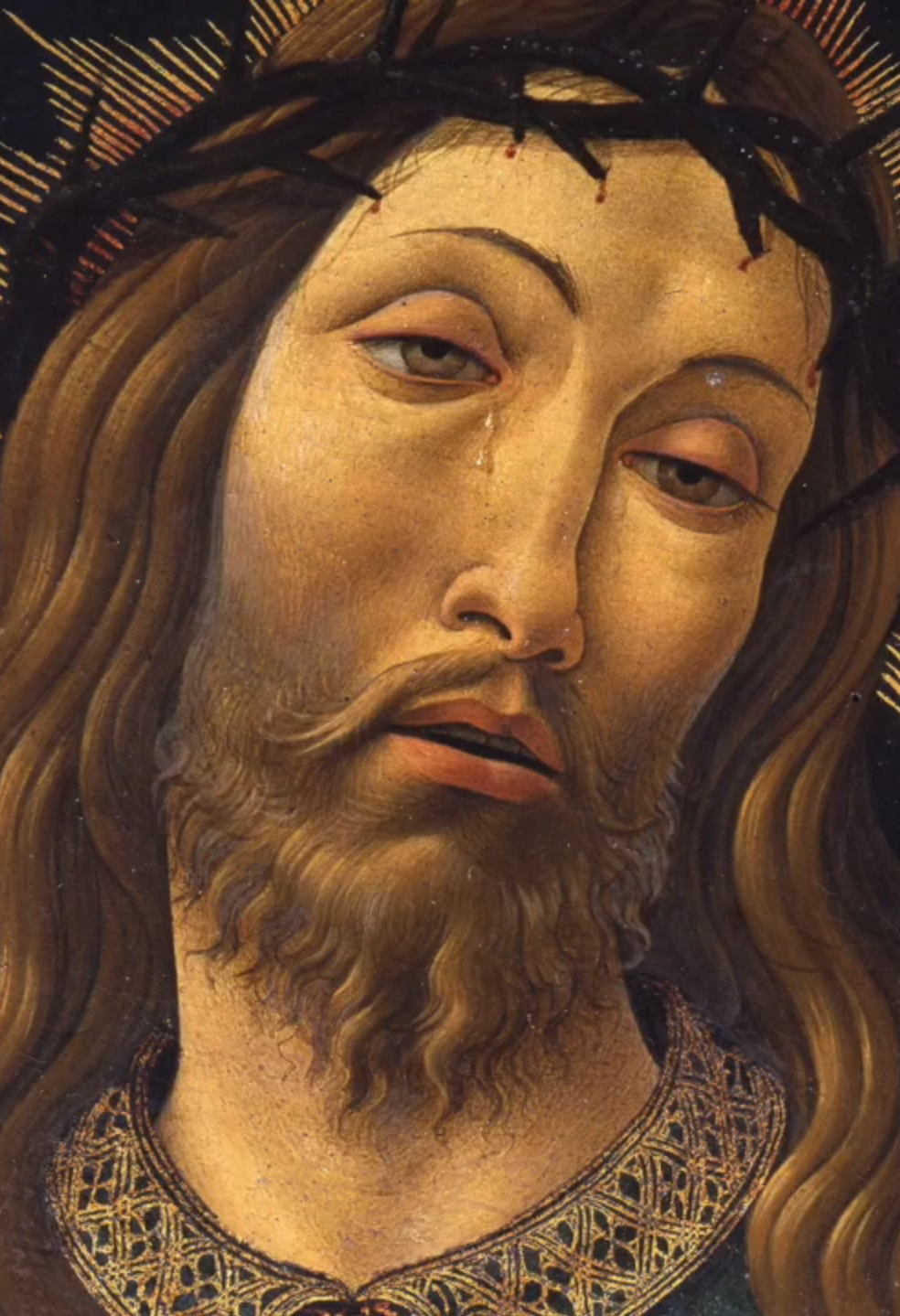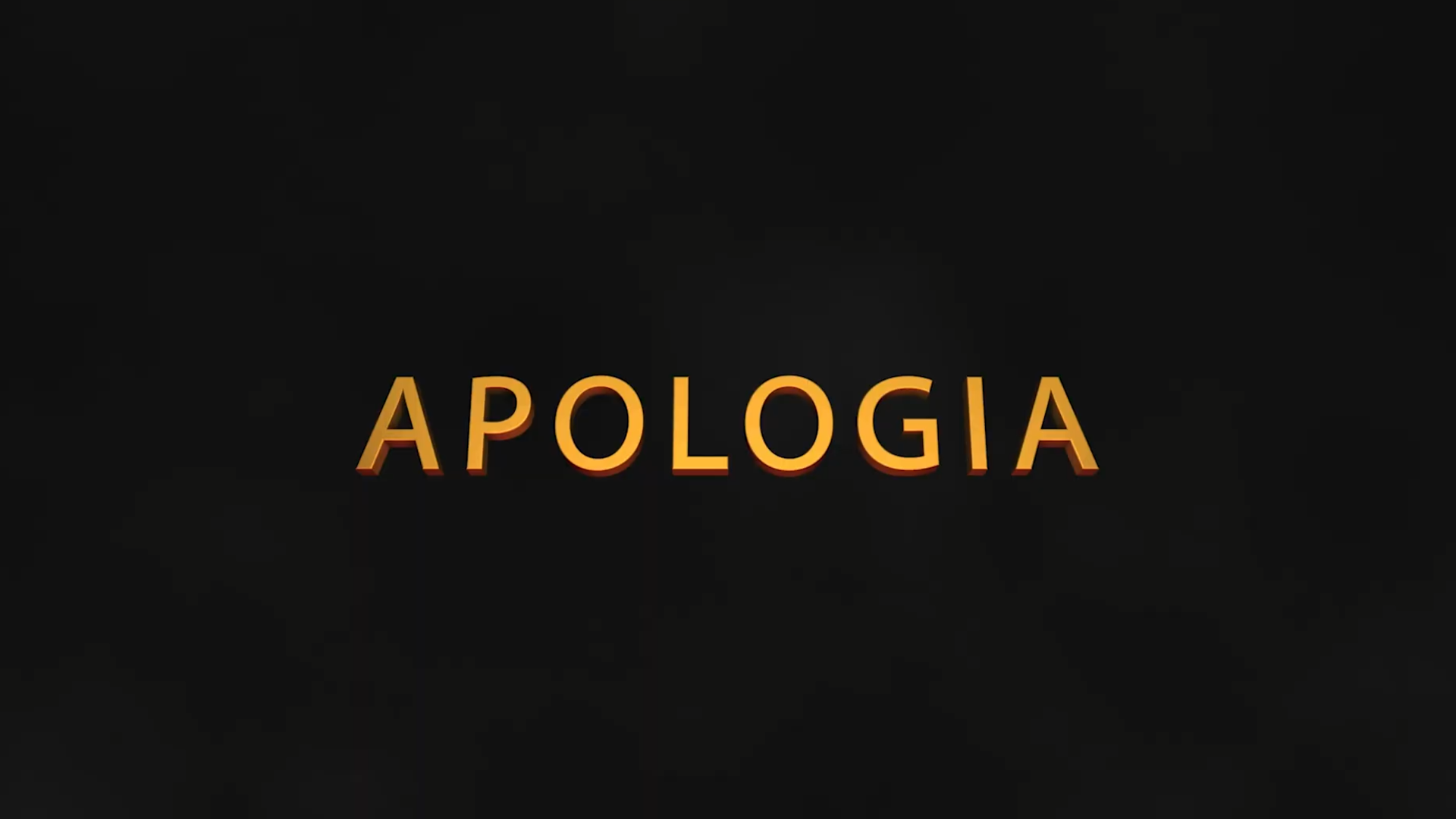Apologia Film
A Glimpse of the Film
Behold - Watch the trailer Now

Apologia Film - The Series
- Introduction:
- Sets the tone by comparing life to a fleeting “morning fog” (James 4:14) and introduces the concept of a reality beyond this life, described as a “treasure” (Matthew 13:44-46).
- Uses a parable about a party (representing life) where everyone is infected with a deadly virus (sin/death), and a man (Jesus) offers a cure and a door to eternal life. This invites readers to explore Jesus’ claims.
- Emphasizes the importance of knowing God through a relationship, akin to studying historical figures, but deeper through the Holy Spirit (Galatians 2:20).
- Our Hearts Are Restless Until They Rest in God:
- Shares a personal story of Bybee’s encounter with Mrs. Kirby, a dying woman whose simple faith in God’s handiwork in nature humbled his philosophical training.
- Argues that God’s existence is self-evident through creation (Romans 1:19-20) and that humanity’s universal search for the divine reflects a “God-shaped vacuum” (paraphrasing Blaise Pascal).
- Discusses how cultural conditioning and suppression of truth (John 3:19) prevent people from acknowledging God.
- We Live in a World of Contradictions:
- Highlights the importance of sound reasoning, drawing on biblical examples like Jesus’ teachings (Luke 2:47) and Paul’s logic (Acts 17:16-34).
- Critiques shallow modern worldviews (politics, media, education, etc.) and introduces tools for clear thinking:
- Noncontradiction: Two opposing statements cannot both be true.
- Cause and Effect: Every effect has a cause. Complete Explanation: The best theory explains the most data.
- Socratic/Aristotelian Method: Combines induction, deduction, and abduction.
- Christian Method: Integrates revelation with reasoning (Augustine, Aquinas).
- References Plato’s Cave Allegory to challenge readers to question whether they perceive true reality or mere shadows (Ephesians 5:8).
- Only God Could Design Us! (Pages 16-19):
- Argues that the complexity of life, particularly DNA and molecular machines (e.g., the flagellum), points to intelligent design. Cites Antony Flew’s conversion from atheism due to DNA’s information content.
- Rejects naturalistic explanations like Stanley Miller’s “metabolic soup” theory, emphasizing that life’s complexity (e.g., DNA’s four-letter code) surpasses human technology (Michael Behe, Michael Denton).
- Uses analogies (e.g., Scrabble letters forming a sentence) to illustrate the improbability of life arising by chance.
- As We Look Up, We Are Awed! (Pages 20-24):
- Presents the universe’s fine-tuning as evidence of a purposeful intelligent design, using the Kalam Cosmological Argument:
- Whatever begins to exist has a cause.
- The universe began to exist.
- Therefore, the universe has a cause (God).
- Discusses the “just right” conditions for life (e.g., nuclear forces, gravity) and the Earth’s unique position for cosmic discovery (The Privileged Planet by Gonzales and Richards).
- References William Paley’s Watchmaker analogy to argue that the universe’s complexity implies a purposeful design.
- Presents the universe’s fine-tuning as evidence of a purposeful intelligent design, using the Kalam Cosmological Argument:
- The Greatest Person Who Ever Lived! (Pages 25-30):
- Highlights Jesus’ unparalleled influence on history, culture, and civilization (e.g., sanctification of human life, charity, education, abolition of slavery).
- Lists contributions of Christianity (Alvin J. Schmidt) and notes Jesus’ global impact (e.g., Christmas, Easter, calendar dating).
- Emphasizes Jesus’ uniqueness as God incarnate, supported by biblical claims (Colossians 1:15, John 10:10) and his transformative effect on individuals.
- The Bible Is More Than a Book (Pages 31-41):
- Argues for the Bible’s reliability and divine inspiration, citing:
- Its status as the best-selling, most-translated book.
- The accuracy of its transmission (e.g., Dead Sea Scrolls, New Testament manuscripts).
- The testimony of historical figures (e.g., Abraham Lincoln, C.S. Lewis).
- Discusses fulfilled prophecies (e.g., Micah 5:2, Daniel 9:20-27) as evidence of divine authorship, with mathematical improbability of fulfillment by chance (1 in 10^17 for 8 prophecies).
- Shares the story of the Saur tribe’s “peace child” custom to illustrate how biblical translation bridges cultural gaps.
- Argues for the Bible’s reliability and divine inspiration, citing:
- Jesus Is Alive! (Pages 42-49):
- Presents the Resurrection as the cornerstone of Christian faith, supported by:
- Early New Testament writings (1 Corinthians 55 AD) and eyewitness accounts (over 500 witnesses, 1 Corinthians 15:5-8).
- Historical and legal analysis (Simon Greenleaf, Paul L. Maier) affirming the empty tomb.
- The transformation of skeptics like James (Jesus’ half-brother) and Paul.
- Addresses skepticism (e.g., David Hume’s denial of miracles) as logically flawed and contrasts it with open-minded inquiry (Augustine’s experience).
- Mentions near-death experiences (e.g., Iben Alexander’s Proof of Heaven) as supporting life after death.
- Presents the Resurrection as the cornerstone of Christian faith, supported by:
- Christ Died for the Church (Pages 50-54):
- Describes the Church as a unique institution with historical and ongoing contributions (e.g., hospitals, education, charity).
- Lists benefits of church involvement (community, support, mission) and defines a true church by its practices (worship, preaching, sacraments, evangelism, mercy).
- Traces the Church’s history from early Jewish believers to global expansion, emphasizing its role as Christ’s body (Colossians 1:18).

Watch Episode One Now Free
Apologia Film is available to watch in its entirity online.
Follow the link below if you wish to get connected with the entire film series.

Our Core Values
Learn more about our values and our story as a church by visiting the about us page.
We value the Lordship of Jesus Christ!
We acknowledge Jesus Christ as the head of our church and fully submit ourselves to His will. In every aspect of our ministry our goal is always to honor and glorify the Lord Jesus Christ.
We value Bible-centered Preaching and Teaching!
We believe the Bible is God’s inspired authoritative and trustworthy rule of faith and practice for Christians. Therefore, we submit ourselves to its teaching, commit ourselves to do what it says, and yield our lives to become what Christ desires for us to be.
We value Prayer!
We believe in the power of prayer. Therefore, the ministries and activities our church will be characterized by a reliance on personal and corporate prayer in all areas of our lives and ministry.
We value Evangelism and World Missions!
We believe in the Great Commission commanded to us by Jesus Christ and we are committed to reaching unsaved and unchurched people locally, nationally and worldwide. We will use every available Christ-honoring means to pursue, win and disciple the people in our sphere of influence.
We value the Family!
We believe God ordained the family to glorify him. We are committed to cultivate an atmosphere which promotes spiritual growth within the family by reaching families with the gospel, discipling them in Christ-like character and teaching each family member how to fulfill their God-given role.
Apologia The Book
- For Skeptics:
The book addresses skepticism by engaging with philosophical and scientific objections (e.g., Hume’s denial of miracles, naturalistic evolution). It provides logical arguments (Kalam, fine-tuning) and historical evidence (Bible reliability, Resurrection) to challenge disbelief. Bybee’s call to question one’s reality (via Plato’s Cave) and Pascal’s Wager may prompt reflection, but entrenched skeptics might dismiss the wager as a pragmatic rather than evidential argument. - For Seekers:
The booklet is well-suited for seekers, offering a clear, accessible introduction to Christian apologetics. The parable of the party, stories like Mrs. Kirby’s, and the emphasis on a “God-shaped vacuum” resonate emotionally, addressing existential questions about purpose and the afterlife. The scientific and historical arguments provide intellectual grounding, while the steps to salvation (Page 56) offer a practical path forward. The bibliography encourages further exploration, which seekers may appreciate. - For Believers:
Believers will find the book affirming, as it equips them with reasons to defend their faith (1 Peter 3:15). The emphasis on discipleship practices (worship, prayer, service) and the Church’s role strengthens their commitment. The personal anecdotes and biblical references reinforce their spiritual convictions, while the apologetic arguments prepare them for conversations with skeptics or seekers.
Apologia Study Guide
This study guide is designed to strengthen faith and teach people about defending the Christian Faith. It is intended to help believers be able to witness and give good answers to people’s objections.
